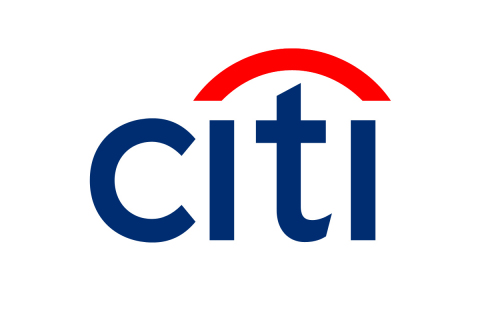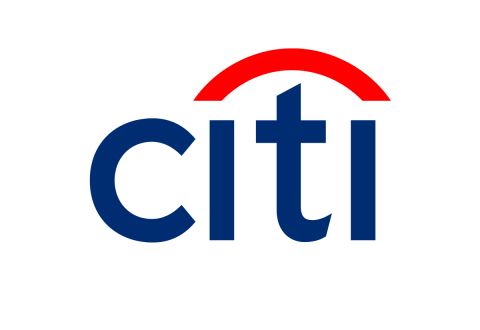LONDON--(BUSINESS WIRE)--Emerging economies that achieve 100% secondary school completion rates for girls by 2030 could see their GDP being boosted by an average of 10%, according to a new report by Citi Global Insights and Plan International.
The report, The Case for Holistic Investment in Girls - Improving Lives, Realizing Potential, Benefitting Everyone, reveals that a total investment of just $1.53 per day per girl in emerging economies would have a huge impact on countries’ overall economic potential.
More than 130 million girls worldwide were out of school before the COVID-19 crisis. According to UNESCO, over 11 million girls may not go back after the crisis.
Adolescent girls everywhere, but especially in developing economies, encounter barriers in accessing and completing quality education, becoming economically independent, participating in the labour force, and living a healthy life free from violence.
“COVID-19 recovery plans that prioritise investment in girls’ education and well-being will help communities and economies build back better and stronger,” said Anne-Birgitte Albrectsen, CEO of Plan International. “But importantly, this must be comprehensive investment not just in education itself, but in dismantling all the various barriers to girls’ empowerment, from child and early forced marriage to gender-based violence and early pregnancy. As we can see from this study, holistic investment in all areas of girls’ lives will result in increased GDP, a high return on investment for countries and a more just world.”
Even greater economic returns would materialise beyond 2030, thanks to the cumulative effects of the benefits, and taking into account the impact educating girls will also have on families and communities
“The special value of the collaboration between Citi and Plan International comes through bringing together the economic and social case, and presenting a solid multi-component investment case,” said Andrew Pitt, Global Head of Research Citi.
“Eradicating barriers to girls’ education and development may hold the key to achieving many of the UN Sustainable Development Goals,” he added.
This report brings together the diverse expertise of Citi Global Insights and Plan International and features three key components:
- a deep dive into the complex barriers that adolescent girls face, and what interventions are required to overcome them;
- an original economic analysis of the potential costs of an intervention package and the economic benefits that could be achieved through this; and
- recommendations on how different sectors can come together to effectively tackle the barriers that are holding adolescent girls back.
A major challenge to research over the years has been a lack of high-quality and inclusive data. Citi and Plan International have partnered to address this crucial knowledge gap, creating one of the most holistic data sets yet on the economic and social benefits of investing in adolescent girls and young women.
The UN has encouraged the development of collaboration between the private sector, the public sector, NGOs and philanthropic institutions in pursuit of the SDGs. This research confirms the benefits of such positive inter-disciplinary collaborations.
The report concludes that investing in the development of adolescent girls will have positive implications across the global goals beyond SDG 5 – gender equality – and is in fact key to achieving sustainable development overall. The importance of girls’ education and empowerment has been linked to several SDGs including reducing conflict, achieving clean water and sanitation as well as tackling climate change.
NOTES TO EDITORS
Return on investment:
- The study looked at the total cost of interventions compared to the economic returns that can be generated, and deduced a 2.8x return on investment. This figure specifically relates up to and including the year 2030. If the results were extended beyond 2030, it can be estimated that any return on investment would increase over time.
- The study compared investing in girls as a return on investment with alternate investments, including infrastructure. It was deduced that the infrastructure return on investment in these countries would be 2x, which as a benchmark is a rate considered worthy of investment.
Key Statistics Relating to Girls
- 132 million girls worldwide are out of school, which includes almost 100 million girls of secondary school age (UNESCO).
- More than 85% of girls in low-income countries do not complete secondary school (UNESCO).
- 15 million girls of primary school age (half of them in Sub Saharan Africa) will never enter a classroom (UNESCO).
- Intimate Partner Violence affects an estimated 29% of girls aged 15-19 worldwide (WHO).
- Globally, 1 in 5 women were married before their 18th birthday (UN Children’s Fund).
- Almost 1 billion (64%) girls and young women under 24 are currently lacking key skills that they need for life and work. In lower-middle income countries, this translates into 75%, and rises to 93% for low-income countries (Malala Fund).
- 90% of countries have at least one law that restricts economic equality for girls and women (World Bank).
About Citi GPS
Citi is one of the world’s largest financial institutions, operating in all major established and emerging markets. Across world markets, our employees conduct an ongoing multi-disciplinary global conversation — accessing information, analysing data, developing insights, and formulating advice for our clients.
As our premier thought leadership product, Citi Global Perspectives & Solutions (Citi GPS) is designed to help our clients navigate the global economy’s most demanding challenges, identify future themes and trends, and prosper in a fast-changing and interconnected world.
Citi GPS accesses the best elements of our global conversation and harvests the thought leadership of a wide range of senior professionals both across the firm and across various academic institutions. For more about Citi GPS go to https://www.citivelocity.com/citigps/.
About Plan International
Plan International is an independent development and humanitarian organisation that advances children’s rights and equality for girls.
We believe in the power and potential of every child. But this is often suppressed by poverty, violence, exclusion and discrimination. And it’s girls who are most affected. Working together with children, young people, our supporters and partners, we strive for a just world, tackling the root causes of the challenges facing girls and all vulnerable children.
We support children’s rights from birth until they reach adulthood. And we enable children to prepare for – and respond to – crises and adversity. We drive changes in practice and policy at local, national and global levels using our reach, experience and knowledge.
We have been building powerful partnerships for children for over 80 years and are now active in more than 75 countries.





